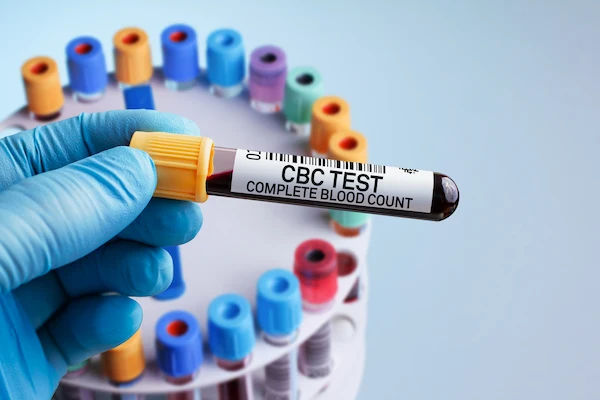Understanding Walking on Toes in Children
Concerned about your child walking on their toes? Learn the common causes, when it’s normal, when to worry, and how toe walking in children can be treated effectively.

Written by Dr. Mohammed Kamran
Reviewed by Dr. Dhankecha Mayank Dineshbhai MBBS
Last updated on 11th Aug, 2025

As parents, we often notice every little change in our child’s behavior and development. One such observation that may raise concerns is when a child frequently walks on their toes instead of using their whole foot. While toe walking is common in toddlers who are just learning to walk, persistent toe walking beyond the age of 2 or 3 may require attention.
In this article, we’ll explore what toe walking is, why it happens, when to be concerned, and how it can be managed.
What Is Toe Walking?
Toe walking refers to a walking pattern where a child walks on the balls of their feet without putting much or any weight on their heels. It is common in children between 12 to 24 months as they experiment with balance and movement. However, if this habit continues beyond age 2 or 3, it may indicate an underlying issue that needs evaluation.
Common Causes of Toe Walking
Toe walking can be idiopathic (habitual) or linked to an underlying condition.
1. Idiopathic Toe Walking (Habitual)
- No medical cause is found.
- The child walks on toes out of habit.
- They can walk flat-footed when asked but prefer toe walking.
2. Medical Conditions Associated with Toe Walking
- Cerebral Palsy – Affects muscle control and coordination.
- Muscular Dystrophy – Weakens muscles over time.
- Autism Spectrum Disorder (ASD) – Some children with ASD toe walk.
- Short Achilles Tendon – Limits heel-to-ground movement.
- Sensory Processing Issues – Some children dislike the sensation of flat-footed walking.
If your child has other developmental delays or stiffness in muscles, consult a doctor for further evaluation.
Consult Top Specialists
When Should You Be Concerned?
While occasional toe walking is normal, you should consult a pediatrician or specialist if:
- Your child always walks on toes beyond age 3.
- They cannot walk flat-footed even when asked.
- Their calf muscles appear tight or stiff.
- They show delays in speech, motor skills, or social interactions.
- They trip frequently or have balance issues.
Early intervention can help correct walking patterns and prevent complications.
How Is Toe Walking Diagnosed?
A doctor will:
1. Observe your child’s walking pattern.
2. Check for muscle tightness or weakness.
3. Review developmental milestones.
4. Recommend tests (if needed), such as:
- Neurological exams (to rule out cerebral palsy).
- Genetic testing (for muscular dystrophy).
- Gait analysis (to study walking mechanics).
If you’re concerned about your child’s walking pattern, you can book a pediatric consultation or physiotherapy session through Apollo 24|7 for expert guidance.
Treatment and Management
Treatment depends on the cause:
1. For Idiopathic Toe Walking
- Stretching exercises – Helps loosen tight calf muscles.
- Physical therapy – Improves strength and coordination.
- Encouraging flat-footed activities – Like walking on heels or squatting.
2. For Medical-Related Toe Walking
- Leg braces or casts – To stretch tendons gradually.
- Botulinum toxin (Botox) injections – Temporarily relaxes tight muscles.
- Surgery (rare cases) – Lengthening the Achilles tendon if other treatments fail.
3. Home Tips for Parents
- Encourage barefoot walking on different surfaces (grass, sand).
- Play games that promote heel-to-toe walking (like pretending to be a penguin).
- Massage and stretch your child’s calf muscles gently.
Can Toe Walking Cause Long-Term Problems?
If left untreated, persistent toe walking may lead to:
- Muscle tightness and reduced ankle movement.
- Balance issues and frequent falls.
- Foot pain or posture problems in adulthood.
Early intervention helps prevent these complications.
When to See a Doctor?
Consult a pediatrician or orthopedic specialist if:
- Toe walking persists beyond age 2-3.
- Your child cannot walk flat-footed.
- They show other developmental delays.
You can schedule an appointment with a pediatric specialist on Apollo 24|7 for personalized advice.
Conclusion
Toe walking is common in toddlers but should be monitored as they grow. While many children outgrow it, persistent toe walking may need medical attention. With early detection and proper care, most children can develop a normal walking pattern.
If you have concerns about your child’s walking habits, don’t hesitate to seek professional advice. Apollo 24|7 offers expert consultations to ensure your child’s healthy development.
Consult Top Specialists
Consult Top Specialists

Dr. Asha Rani Singh
Obstetrician and Gynaecologist
24 Years • MBBS DGO
Delhi
Dr Asha Rani Singh Clinic, Delhi

Dr. Mona Yadav
Obstetrician and Gynaecologist
19 Years • MBBS, MD (Obstetrics & Gynaecology)
Dombivli
Nulife multispeciality, Dombivli

Dr. Parul Sharma
Obstetrician and Gynaecologist
8 Years • MBBS, MS (Obstetrics & Gynaecology)
New Delhi
THE DOCTORS NESST, New Delhi
Dr. K Anusha
Obstetrician and Gynaecologist
4 Years • MBBS, DGO
Yemmiganur
SRINIVASAA HOSPITAL, Yemmiganur

Dr. Shyamala Devi
Obstetrician and Gynaecologist
38 Years • MBBS, MS Obstetrics & Gynaecology
Vijayawada
Sri Shivshakti Nilayam, Vijayawada
Consult Top Specialists

Dr. Asha Rani Singh
Obstetrician and Gynaecologist
24 Years • MBBS DGO
Delhi
Dr Asha Rani Singh Clinic, Delhi

Dr. Mona Yadav
Obstetrician and Gynaecologist
19 Years • MBBS, MD (Obstetrics & Gynaecology)
Dombivli
Nulife multispeciality, Dombivli

Dr. Parul Sharma
Obstetrician and Gynaecologist
8 Years • MBBS, MS (Obstetrics & Gynaecology)
New Delhi
THE DOCTORS NESST, New Delhi
Dr. K Anusha
Obstetrician and Gynaecologist
4 Years • MBBS, DGO
Yemmiganur
SRINIVASAA HOSPITAL, Yemmiganur

Dr. Shyamala Devi
Obstetrician and Gynaecologist
38 Years • MBBS, MS Obstetrics & Gynaecology
Vijayawada
Sri Shivshakti Nilayam, Vijayawada




